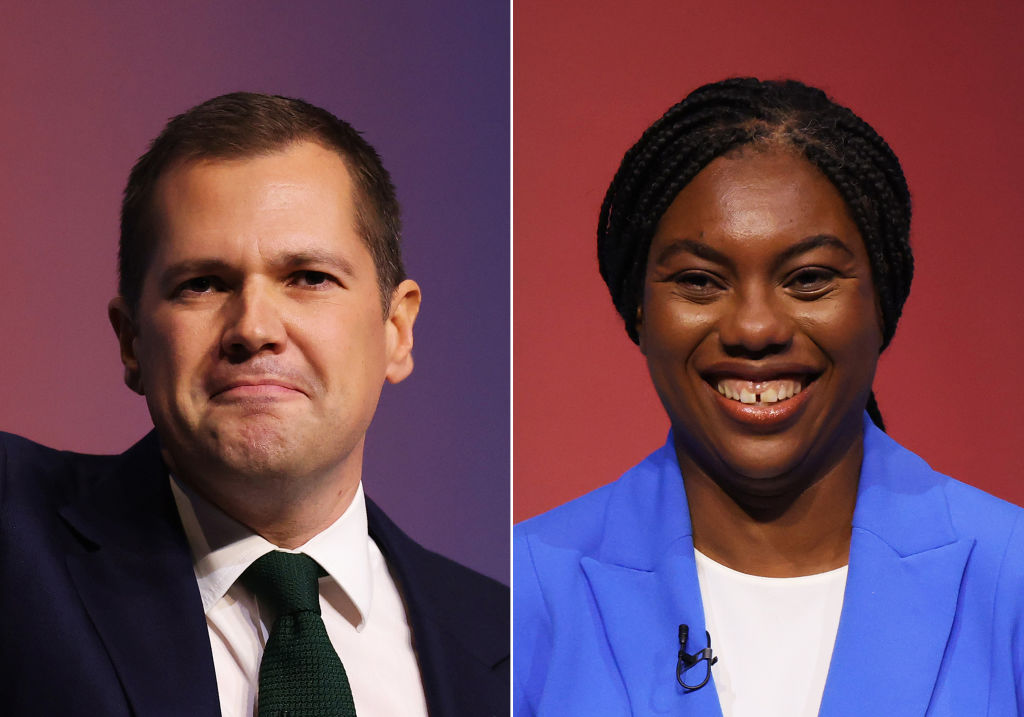
Is Labour the real winner of the Conservative leadership contest? That is the consensus at Westminster after James Cleverly was eliminated from the contest, leaving a Kemi Badenoch vs Robert Jenrick final.
Labour ministers and MPs were delighted by the defeat of the candidate they feared most. “Just the news we needed to cheer us all up!” said one. A minister told me they relished the result on Machiavellian grounds. “I wonder if we’ll have to declare this as a gift,” a third Labour MP quipped.
It’s certainly true that Cleverly would have made the most energetic effort to detoxify the Tories’ brand. “The candidate I most feared was whoever would basically apologise for their mistakes and say never again,” a No 10 aide remarked.
In his Conservative conference speech, Cleverly declared: “Let’s be enthusiastic, relatable, positive, optimistic – let’s be more normal.” And polling gave him a notable advantage among the public, with 21 per cent saying he was most likely to become prime minister, compared to 10 per cent for Jenrick and 7 per cent for Badenoch.
Yet rather than moderation in defeat, Conservative MPs have opted for radicalism. Rishi Sunak was no centrist (as I wrote when he was elected) but both candidates have positioned themselves to his right. Does this mean Labour has nothing to fear? Sceptical heads in the party aren’t so sure.
“The confidence that Cleverly was the one we had to be worried about and we can clap our hands now he’s gone is SW1 babble,” a Starmer ally told me. Recall that the Prime Minister himself has long identified the populist right as the defining threat that Labour faces.
Back in July, he told the New Statesman’s summer party: “You only have to look across the Channel at Europe and you see nationalism and populism in all its forms and all its strengths. And do not think for a minute that that could never happen here. It could and it might if we fail in our project of delivering change.”
In different ways, Jenrick and Badenoch would challenge Labour from the populist right. The former is demanding withdrawal from the European Convention on Human Rights; the latter is waging a cultural insurgency against the “progressive left” and the “bureaucratic class”: HR departments, liberal lawyers, university staff.
It’s Badenoch who some in Labour identify as the biggest threat. She understands, they say, that part of the job of being opposition leader is being noticed at all and will seek to drag the party on to uncomfortable terrain: free speech, trans rights and diversity policy. A focus group by More in Common found that she was the preferred choice of former Tory voters who voted for other parties in the July general election, and who described her as “sincere”, “energising”, “personable”, “strong” and “fresh”.
The risk for the Conservatives is that both Badenoch and Jenrick have too little to say about the issues that lost the party the election: economic competence and the decline of public services. They may repel Liberal Democrats while also failing to reunify the right. These are all reasons the Westminster consensus favours Cleverly. But then the early consensus was also that Margaret Thatcher was doomed as opposition leader, that Remain would win the 2016 EU referendum and that Keir Starmer was destined for defeat.
Novelty is often overrated in politics: recall those who argued Labour should “fear” the ultra-Thatcherite Liz Truss. But either Badenoch or Jenrick will face an unpopular government in a volatile landscape. After the electoral shocks of recent years, Labour should be circumspect rather than jubilant.
This piece first appeared in the Morning Call newsletter; receive it every morning by subscribing on Substack here
[See also: Sue Gray fell foul of Keir Starmer’s ruthless streak]






